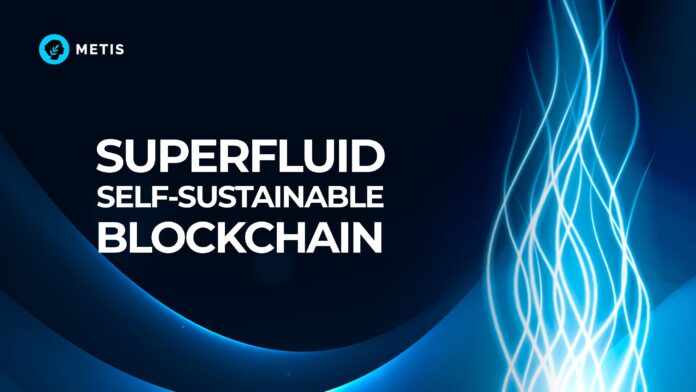Blockchain technology was borne out of self-funded innovation. Satoshi Nakamoto, whether a team or individual, most likely funded their own research and development of the Bitcoin protocol. This was similarly the case for many of the initial developments that followed.
But since then, the technology has advanced. And with each subsequent innovation, breakthroughs have become harder to attain, demanding and consuming more resources. And so, self-funded development is becoming increasingly unsustainable for many developers.
Many web3 projects now need external funding to sustain the R&D level demanded by the current blockchain environment. And in a space that lacks well-established funding models, it has fallen to foundations to provide this much-needed support.
The Role of Foundations in Crypto Development
The blockchain sector is far from maturing. And with increasing research and development costs, funding remains a persistent challenge for many developers and projects. This is in no small part because traditional funding models often don’t align well with the ethos underpinning much of the crypto space.
Venture capitalists prioritize control, rapid growth, and quick returns on investment. They usually seek equity or significant influence over the projects they fund, which creates tension in a space where power and control are distributed rather than centralized.
Foundations, however, are typically mission-driven and focused on the overall health and growth of the ecosystem. This allows them to fund projects in ways that don’t conflict with the core principles of the technology.
As such, they are filling the role that venture capitalists and investors traditionally fulfill in industries.
Metis Foundation’s $4 Million Annualized Incentive Program
On August 13th, the Metis Foundation launched a $4 million annual support program. This initiative is aimed at providing major support to innovative projects building solutions on the network. The funds will be distributed through strategic partnerships with developers and entrepreneurs in the ecosystem.
Metis is a decentralized Layer 2 protocol on Ethereum. It is designed to enhance scalability, security, and user experience on the blockchain. Dedicated to its development and adoption is the Metis Foundation, an initiative that aims to build a robust ecosystem that empowers stakeholders to develop web3 solutions.
Gitcoin, a platform that connects developers with open-source projects and funding opportunities, is the foundation’s first partner. By leveraging Gitcoin’s established reputation in supporting open-source development, Metis is tapping into a vast network of developers passionate about decentralized technologies.
This collaboration ensures that the funds are not only distributed but are used effectively to drive impactful projects that align with the Metis network’s goals. Gitcoin will help direct support and resources to the most promising and innovative projects, creating a community where developers can thrive and push the boundaries of what’s possible in the space.
In the announcement, Sov, the Head of Grants at Gitcoin, expressed excitement about the partnership, highlighting the potential for these grants to catalyze significant growth within the Metis ecosystem.
Elena Sinelnikova, Co-Founder at Metis Foundation, highlighted the foundation’s commitment to innovation. She noted that a partnership with Gitcoin will allow them to better provide the necessary resources and support to turn visionary ideas into reality on the Metis network.
Fostering Blockchain Innovation
Metis’s focus on Layer 2 scaling solutions addresses one of the most pressing challenges in blockchain technology: scalability. By providing substantial support for innovative applications on its platform, Metis is positioning itself at the forefront of efforts to make blockchain technology faster and cheaper.
This initiative is likely to accelerate the development of decentralized applications (dApps) that can handle higher transaction volumes with lower costs. The potential impact extends beyond just technical improvements – it could help nurture blockchain solutions that eventually drive mass adoption across various industries.
In this way, blockchain foundations are the lifeblood of innovation in the crypto space. They provide the necessary funding, stability, and ecosystem support, for web3 projects, allowing the technology to continue accelerating.
Disclaimer: This article is provided for informational purposes only. It is not offered or intended to be used as legal, tax, investment, financial, or other advice.
Credit: Source link






















 Bitcoin
Bitcoin  Ethereum
Ethereum  Tether
Tether  Solana
Solana  XRP
XRP  Dogecoin
Dogecoin  USDC
USDC  Cardano
Cardano  Lido Staked Ether
Lido Staked Ether  TRON
TRON  Stellar
Stellar  Avalanche
Avalanche  Toncoin
Toncoin  Shiba Inu
Shiba Inu  Wrapped stETH
Wrapped stETH  Wrapped Bitcoin
Wrapped Bitcoin  Polkadot
Polkadot  Chainlink
Chainlink  Bitcoin Cash
Bitcoin Cash  WETH
WETH  Sui
Sui  Pepe
Pepe  LEO Token
LEO Token  NEAR Protocol
NEAR Protocol  Litecoin
Litecoin  Aptos
Aptos  Uniswap
Uniswap  Wrapped eETH
Wrapped eETH  Hedera
Hedera  Internet Computer
Internet Computer  Cronos
Cronos  USDS
USDS  POL (ex-MATIC)
POL (ex-MATIC)  Ethereum Classic
Ethereum Classic  Render
Render  Bittensor
Bittensor  Artificial Superintelligence Alliance
Artificial Superintelligence Alliance  Ethena USDe
Ethena USDe  Arbitrum
Arbitrum  Cosmos Hub
Cosmos Hub  Bonk
Bonk  Filecoin
Filecoin  WhiteBIT Coin
WhiteBIT Coin  Dai
Dai  MANTRA
MANTRA  dogwifhat
dogwifhat  Celestia
Celestia 
